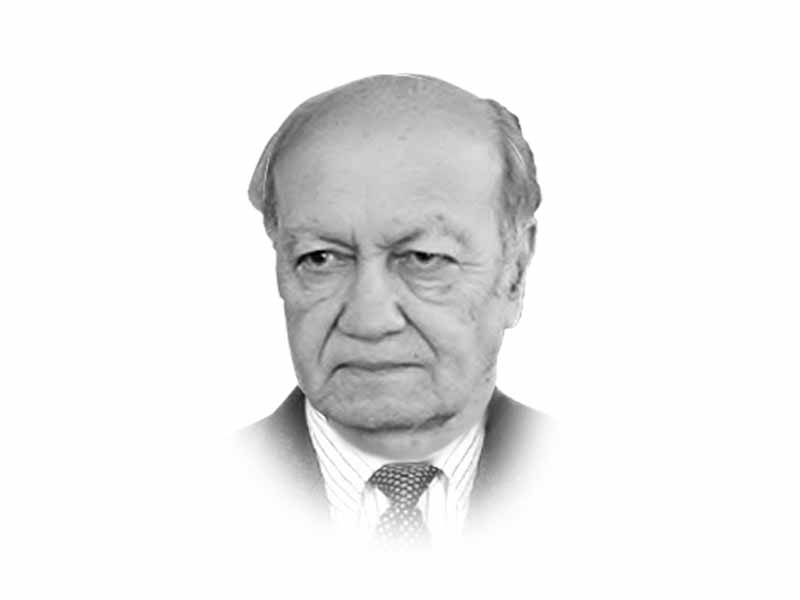
His economic policies- “America first”, turning the clock back on globalisation and threatening to penalise China for its perceived wrongdoings could lead to anarchy. No doubt, President Trump has every right to bring about changes and reforms that are good for America but not at the expense of the rest of the world. For that would be too short sighted and will reduce the role and influence of America dramatically. His focus on building America’s infrastructure and industrial power is a perfectly valid goal but not by trampling on the economic rights of other countries.
Moreover, being a superpower does not give the US licence to arbitrarily impose its will. It has to conform to international laws and treaties and accepted global ethics and practices. Otherwise, there will be a serious backlash from other centres of power strengthening forces that will be reminiscent of the Cold War. The rhetoric of President Trump against Muslims and Mexicans has already alienated them and are deeply concerned about their future.
In a way President Trump’s earlier statements and remarks have kept both his supporters and detractors guessing. India, Japan and its other allies are not sure if their strong strategic partnership with the US against China would hold. Although it would be good for world peace if did not. Because by building India that has benefited enormously by the support it has received from the US during Obama’s presidency has only encouraged its hegemonic designs, putting smaller South Asian nations under pressure. A more principled approach would be to let India and China find a natural balance in their relationship rather than be propped up to challenge Beijing at the regional level. The argument advanced by some Washington based analysts that without the US support, Asia would become a victim of Chinese hegemony is hubris. It is Indian tactics to use the Chinese bogey to advance its goals of maximising power and to extract concessions from America.
According to Ashley Tellis, the US by helping India expand in power and prosperity “served the highest geopolitical interests of the US in Asia and globally and help maintaining a balance of power that advantaged the liberal democracies”. By supporting India in its ambition to be a permanent member of the United Nations Security Council, Washington is conveniently overlooking its human rights violations in Kashmir and defiance of UNSC relevant resolutions. New Delhi would also be desirous of further expanding cooperation in the civil nuclear and defence technologies using the pretext of China’s threat. This tainted projection of Chinese intentions suits Washington’s policy-makers. Although Beijing’s primary interest is to keep strengthening its economy and lift the backward regions of China and play a role in world affairs commensurate with its national power and standing. Moreover, Indian and Chinese economies are closely intertwined and last year mutual trade exceeded $65 billion and keeps growing.
All this betrays that India’s US lobby wants the best of both the worlds.
Hopefully, President Trump will not adopt an irrational hostile policy toward China and a discriminatory attitude toward Pakistan. If that were to happen the world would get sharply divided in different camps and the international system would be in total disarray. Already there are indications of India trying to subvert the CPEC project and Washington wary of China’s growing influence in the region. New Delhi is aware that Pakistan’s power potential will be greatly augmented by the new global geostrategic position that will emerge on completion of CPEC. It is not surprising that the government is raising a large dedicated force to further secure the route and provide enhanced security to personnel working on the project.
Our efforts at improving relations with Russia and further strengthening bonds with the Muslim countries, especially Saudi Arabia and Iran, will be very helpful in countering hostile pressure emanating from the US and India. Meanwhile, our Foreign Office and political leadership should make renewed efforts at engaging with the new US administration. With the change in US administration and CPEC in its implementation phase and economy relatively in better shape it is an opportune time for Pakistan to pay greater attention at improving its image.
Concurrently, Pakistan should take concrete measures to counter the derogatory narrative that is fostered by India that it is an exporter of terrorism. Projection of its soft image and taking concrete steps towards eliminating the residual militant elements in the country should be helpful in gaining confidence of the US administration and the security establishment. As a reciprocal measure the US may also need to mitigate the trust deficit that exists between the two countries. Lack of trust has developed due to the fluctuating nature of their relationship over the years. The reduction in military aid to Pakistan by US Congress had commenced during Obama’s presidency. With Republicans currently in majority in both the Senate and the House of Representative and President Trump looking inwards Pakistan should be prepared for a substantial decline in US assistance. The next few months may clear the fog of what the Trump presidency means for the world and how countries like Pakistan should relate to it.
Published in The Express Tribune, January 25th, 2017.
Like Opinion & Editorial on Facebook, follow @ETOpEd on Twitter to receive all updates on all our daily pieces.

1732441915-0/BeFunky-collage-(12)1732441915-0-165x106.webp)

1732438802-0/BeFunky-collage-(11)1732438802-0-165x106.webp)








COMMENTS (7)
Comments are moderated and generally will be posted if they are on-topic and not abusive.
For more information, please see our Comments FAQ